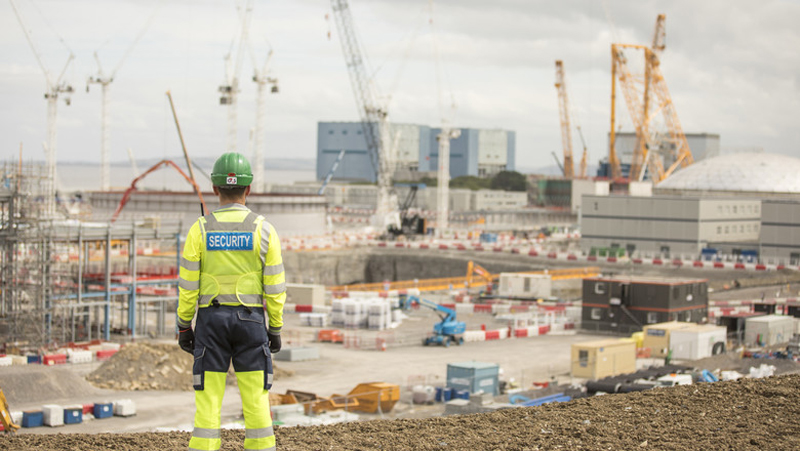 Following a challenging 2020 for UK companies brought on by the global coronavirus pandemic, Steve Frost, an Integrated Solution Specialist from the G4S Academy in the UK and Ireland, discusses the security threats that utilities companies should prepare for in 2021:
Following a challenging 2020 for UK companies brought on by the global coronavirus pandemic, Steve Frost, an Integrated Solution Specialist from the G4S Academy in the UK and Ireland, discusses the security threats that utilities companies should prepare for in 2021:
With all the disruption that the pandemic has brought to the UK throughout the last year, it is truly commendable how the utilities sector resolutely stuck to its task in very difficult circumstances – keeping our lights on, our homes heated and our water flowing – to name just a few services that most of us take for granted every day.
At G4S, it is a sector we know very well. We provide security solutions to UK utilities companies, including projects like Hinkley Point C new nuclear new build in Somerset, and the Thames Tideway Tunnel in London.
There is no doubt that coronavirus will continue to cause disruption well into this year, but for utilities companies this doesn’t mean that other threats to their safety and security become less of a problem. In fact, as I’ll explain below, in some key areas it increases the risk
So where do we see the biggest threats to the utilities industry coming from in 2021?
There is a well-established link between times of economic downturn and civil unrest, which in turn leads to significant increases in organised crime, and opportunistic crime.
When it comes to utilities, this means that metal theft is going to be a primary security concern.
Energy sites, for example, and in particular renewable energy sites such as solar farms and onshore wind, often have a huge footprint in remote locations with an undefined perimeter. This makes them a regular target for metal theft.
At times of civil unrest there is always an increase in protest activity, and power generation sites – especially coal and gas – are regularly targeted. With the spotlight on climate change growing every year, and the notable increase in demonstrations from groups like Extinction Rebellion, the threat posed by protest activity to energy sites is not going to stop anytime soon and should be considered a top security concern in 2021.
The coronavirus pandemic has led to a significant change in ways of working across all industries in the last year, including a big increase in lone working.
Working alone is named as a top ten hazard of concern for employees, and with eight million lone workers in the UK now, employers must place high importance in assessing and mitigating the risk to those employees. Given the remote location of many utilities sites; lone worker protection systems should be seen as essential. These include sophisticated distress and panic alarms, some of which can even auto-monitor audio signals to detect aggressive behaviour against an employee without the worker needing to trigger the alarm.
For those continuing to operate through lockdown, or those who are planning a return, you’ll recognise that creating an environment that appears safe is critical for staff, visitors and contractors alike. Taking visible action to enforce protocols around distancing, PPE and overcrowding are so important to ensuring any return is sustainable.
However, when it comes to security, the fundamental goal is always to ensure that the risk posed by any threat is as low as reasonably possible. In many circumstances, this is achieved through Detect, Delay and Respond. This means ensuring that you have systems in place to identify security threats at the earliest possible opportunity (Detect), making it as hard as possible for the threat to get to the person or property that is vulnerable (Delay), which gives you the time to deploy the people or technology you need to stop the threat (Respond).
For any company, the safety of employees and customers should be the top consideration, above everything else. No two sites are the same. Comprehensively assessing the risks that you face, and applying the principles of Detect, Delay and Respond to your security solutions, means that you should always be one step, if not many steps, ahead of any threats.
G4S encourages anyone working in the utilities sector to join them on Tuesday 16 February 2021 for a free, fully interactive online session, held in a private forum where they can openly share their views, gain and share best practice. Register to attend here

